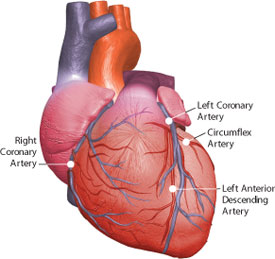|
Writing from within the US health care system—an admittedly broken state
capitalist system slouching toward something much like Canada's failed
state socialist model—I find Bredin's sentiments disconcerting.
 Why urge further travel down the road to ruin, from state socialism
toward outright fascism? "Organs as state property" is something right
out of Auschwitz, where Jewish prisoners were literally drained of their
blood to provide plasma for the Wehrmacht, or the Chinese laogai system
in which prisoners are executed for the express purpose of selling their
organs to patients from the wealthier nations of the Pacific Rim.
Why urge further travel down the road to ruin, from state socialism
toward outright fascism? "Organs as state property" is something right
out of Auschwitz, where Jewish prisoners were literally drained of their
blood to provide plasma for the Wehrmacht, or the Chinese laogai system
in which prisoners are executed for the express purpose of selling their
organs to patients from the wealthier nations of the Pacific Rim.
Acknowledgment of property rights in one's body is the obvious—in fact
the only—solution to the problem of transplant organ shortages.
For decades, government has artificially reduced the available supply of
donor organs by dictating that such organs may not be bought or sold.
The results of such policies can be rationally expressed in two words:
Body count.
How many patients have died awaiting an organ that
never arrived? How many organs would have arrived had the owners
of those organs been permitted to sell them, pre-mortem in the case of
kidneys, liver and pancreas sections, etc., or post-mortem in the case
of hearts and lungs?
In any transplant operation, the patient or the patient's proxy pays
through the nose. The hospital is paid. The surgeons are paid. The
nurses are paid. The anesthetists are paid. The bookkeepers, bean-counters
and bureaucrats all take home a paycheck. And the medical "ethicists"
who inveigh against applying market principles to transplant organ
supply? They do so on salary.
|

